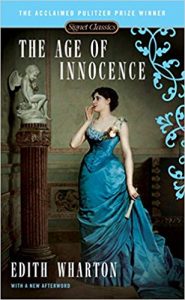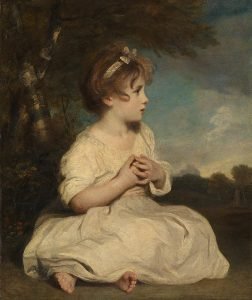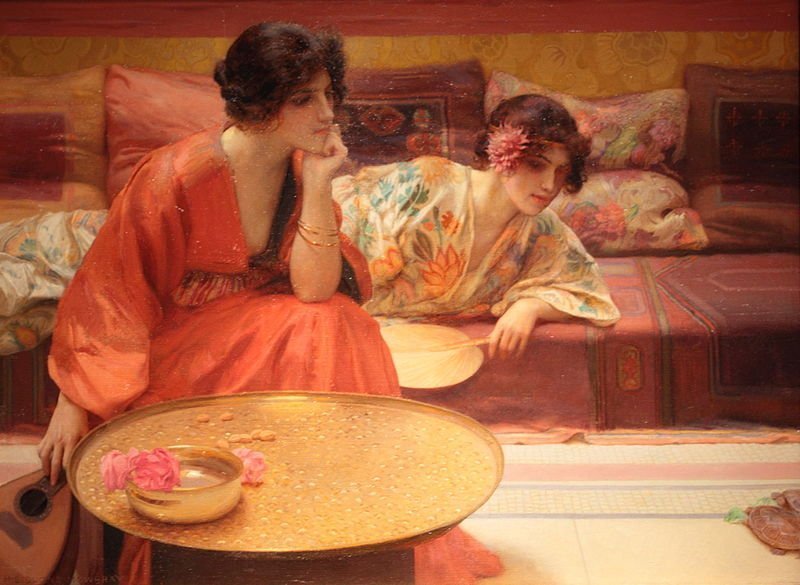
The Age of Innocence: “On a January evening of the early seventies, Christine Nilsson was singing in Faust at the Academy of Music in New York.”
It’s 1870s New York, the Gilded Age of America, where substantial economic growth has bred a culture of wealth, class and entitlement. There are certain ways you behave and certain ways you don’t. The approval of the masses govern your actions and if you fall out of step, the resulting repercussions could be fatal to your social standing. However as opulent as the “gild” may appear, gilding is often used to mask flaws, and Wharton, in this Pulitzer Prize novel, examines the cracks and blemishes of New York society underneath the glamour.
Newland Archer is a young man who is firmly entrenched in the Gilded Age, the dictums of New York society inscribed in his soul with the expectations of the generation preceding his firmly entrenched in his behaviour. Then enters Madame Olenska. Ellen Olenska is the cousin of his betrothed, May Welland. While May is simple and uncomplicated, sort of a clear mirror of the society in which they move, Ellen is foreign and complex and holds an attraction for Newland that draws him outside of his societal shell, allowing him a new perspective on life. Suddenly the world he saw as sensible and practical now receives a critical appraisal from him as it appears small-minded, predictable and stifling. As his attraction for Ellen grows, so does his dissatisfaction. There is a possible turning point, but the break never materializes as Newland and May wed, beginning their married life. Yet Ellen appears in their lives yet again and the uncomfortable unknown is always whispering around us: will Archer satisfy his longing and run away with Ellen or will old society New York curb his emotions and steer him on a more dutiful course?


 The True Saint Nicholas:
The True Saint Nicholas: 






 For someone who has read Cold Comfort Farm, I was so excited to find this book, however I was disappointed to discover the title is misleading. Instead of being further adventures from Cold Comfort Farm, it is actually a compilation of short stories by Stella Gibbons and Christmas at Cold Comfort Farm is only one of them. And to add further disappointment, only one or two of them even remotely mentions Christmas. Fool me once, and all that ……
For someone who has read Cold Comfort Farm, I was so excited to find this book, however I was disappointed to discover the title is misleading. Instead of being further adventures from Cold Comfort Farm, it is actually a compilation of short stories by Stella Gibbons and Christmas at Cold Comfort Farm is only one of them. And to add further disappointment, only one or two of them even remotely mentions Christmas. Fool me once, and all that ……

